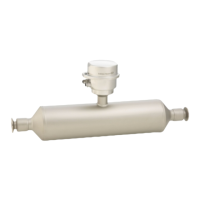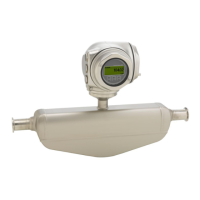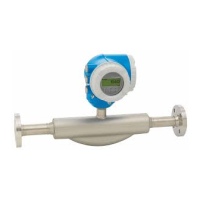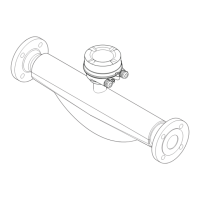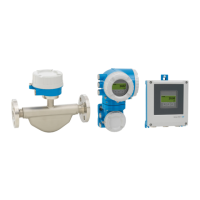Installation Proline Promass I 300 PROFINET
24 Endress+Hauser
Installation dimensions
For the dimensions and installation lengths of the device, see the "Technical
Information" document, "Mechanical construction" section .
6.1.2 Environmental and process requirements
Ambient temperature range
Measuring device • –40 to +60 °C (–40 to +140 °F)
• Order code for "Test, certificate", option JP:
–50 to +60 °C (–58 to +140 °F)
Readability of the local
display
–20 to +60 °C (–4 to +140 °F)
The readability of the display may be impaired at temperatures outside the
temperature range.
Dependency of ambient temperature on medium temperature→ 245
‣
If operating outdoors:
Avoid direct sunlight, particularly in warm climatic regions.
You can order a weather protection cover from Endress+Hauser. → 226.
System pressure
It is important that cavitation does not occur, or that gases entrained in the liquids do not
outgas.
Cavitation is caused if the pressure drops below the vapor pressure:
• In liquids that have a low boiling point (e.g. hydrocarbons, solvents, liquefied gases)
• In suction lines
‣
Ensure the system pressure is sufficiently high to prevent cavitation and outgassing.
For this reason, the following mounting locations are recommended:
• At the lowest point in a vertical pipe
• Downstream from pumps (no danger of vacuum)
A0028777
Thermal insulation
In the case of some fluids, it is important to keep the heat radiated from the sensor to the
transmitter to a low level. A wide range of materials can be used for the required
insulation.
The following device versions are recommended for versions with thermal insulation:
Version with extended neck for insulation:
Order code for "Sensor option", option CG with an extended neck length of
105 mm (4.13 in).
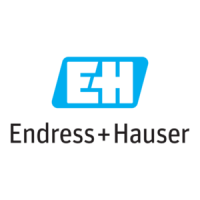
